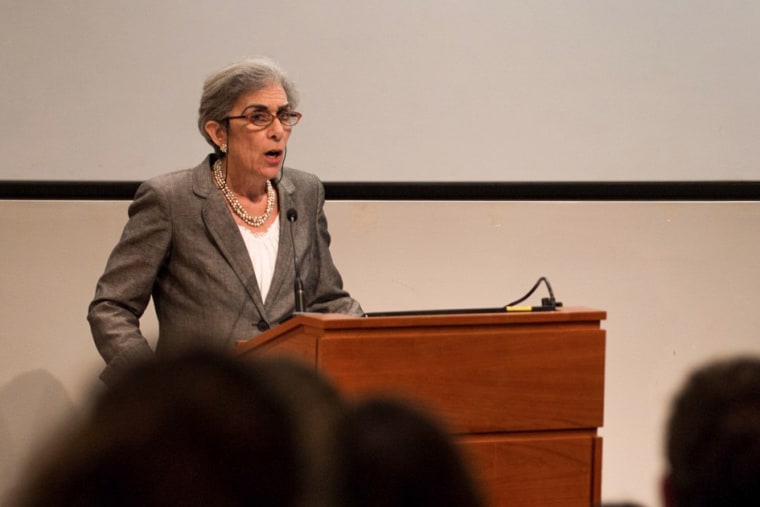University of Pennsylvania law professor Amy Wax — known for her history of racist remarks — said Black and Asian people are resentful toward “Western peoples’ outsized achievements” on a recent segment of Tucker Carlson’s Fox Nation show.
Referring to Indian Americans, Wax said April 8 on “Tucker Carlson Today”: “They climb the ladder, they get the best education, we give them every opportunity, and they turn around and lead the charge on ‘we’re racist, we’re an awful country.’ On some level, their country is a s--thole.”
Wax, who attended Columbia Law School and has taught at Penn since 2001, previously drew national attention when she said the U.S. would be “better off with fewer Asians.”
The executive director of the South Asian civic organization Indian American Impact, Neil Makhija, a lecturer at Penn Law, said Wax’s overtly racist talking points have led him to doubt his colleague’s capacity to teach students of all races.
“The most unfortunate thing is that we have a lot of brilliant and incredible students at the law school,” he said. “It makes you question whether she can fairly grade or educate.”
Wax didn’t respond to a request for comment.
The university removed Wax from teaching a mandatory first-year class in 2018 and confined her classroom duties to an elective course, Makhija said. But he said she shouldn’t have a platform at all.
“These comments are the only reasons anyone knows who Wax is today,” he said. “She found a platform on Tucker Carlson, but very few others would grant her any credibility. … She’s simply trying to add a veneer of intellectualism to blatant racism.”
In her appearance on Carlson’s show, Wax mocked the anti-racist efforts of South Asian women, particularly those at the Penn School of Medicine. “I feel like asking these people, why did you leave your country? Why are you here?”
Carlson added, “You don’t show up in someone else’s country and start attacking them.”
Beyond the xenophobia, Makhija said, the attacks on Indian American physicians don’t hold weight for a very simple reason.
“What’s extraordinary is most of those people she is attacking probably didn’t even immigrate; they were born here,” he said. “She’s treating our own citizens as people who are less American and don’t belong here.”
Her appearance on Carlson’s show wasn’t the first time Wax has made anti-Asian remarks. In an interview in December, she said that Indians Americans should be more “grateful” to be in the U.S. and that the country would be “better off with fewer Asians.”
Penn confirmed that the school is in the middle of disciplinary proceedings against Wax.
“The University of Pennsylvania Carey Law School has previously made clear that Professor Wax’s views do not reflect our values or practices,” a representative said. “In January 2022, Dean Ruger announced that he would move forward with a University Faculty Senate process to address Professor Wax’s escalating conduct, and that process is underway.”
Law School Dean Ted Ruger said in a statement this year that he has received multiple complaints since 2017 describing Wax’s behavior as being disruptive to students and the school community. He called her “thoroughly anti-intellectual and racist.”
For Makhija, Wax is operating outside the realm of facts and doesn’t deserve to be debated or given attention. Instead, he said, the emphasis should be put on South Asians voices.
“I think what’s most important is how the community responds,” he said. “How we as a community at Penn, and broadly amongst Indian Americans and allies, reject this.”

